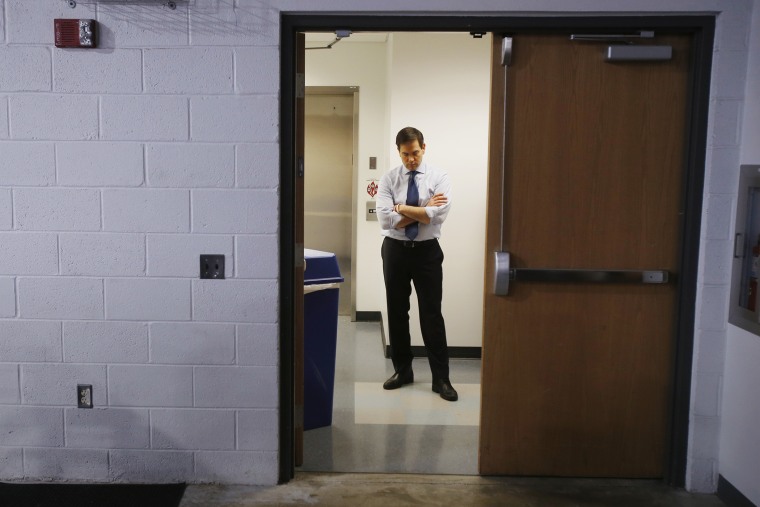Over the course of the 2016 presidential race, Marco Rubio was compared to a variety of people -- the "Republican John Edwards" was especially compelling -- but the Florida senator always reminded me most of George W. Bush. Both enjoyed considerable support from the GOP establishment; both were far more conservative than their pleasant demeanor suggested; both chose not to invest too much energy in substantive policy details; both lacked necessary curiosity; and both preferred not to work too terribly hard.
The difference is, George W. Bush was actually a fairly savvy politician. Marco Rubio lost a primary in his home state by nearly 20 points.
It's difficult to remember a candidate who enjoyed the kind of advantages Rubio had, but who ended up failing so spectacularly. The Florida senator was adored and celebrated by his party's establishment. Pundits not only fawned over him, they practically ordered Republican primary voters to support him. What he lacked in accomplishments and qualifications he made up for through charm, money, and well-delivered right-wing rhetoric.
But Rubio's castle was made of sand, washed away effortlessly by one obnoxious wave.
Despite all of his many advantages, the senator managed to win just one state's caucus. His campaign fared so incredibly poorly that Dylan Matthews argued persuasively that Rubio has done lasting damage to his future political prospects, despite his youth.
[Rubio] also has no political career to speak of after this.... He could run for governor in 2018, but he's very unpopular at home now. [...] So he can't stay senator -- and he hates the Senate anyway. He can't become governor. He's not going to be president in 2017. And he's set himself quite poorly for another run in 2020.... Maybe Rubio will stage a comeback (stranger things have happened in politics) but at the moment it looks like his life in politics is over.
When a candidate fails badly in his own home state -- Rubio lost 66 of Florida's 67 counties -- it's difficult to recover. (In each of yesterday's other primaries, the senator finished fourth out of four.)
When things got tough for Rubio, he just didn't have anything to fall back on. The senator had no accomplishments to boast of; he had no key constituencies to turn to; he had no bold ideas to point to. Instead, Rubio had a pitch: You should vote for me because I seem like the kind of candidate people vote for.
Evidently, that's not quite what the Republican Party was looking for in 2016.
I imagine Rubio and his team will ask themselves some key questions, over and over again, in the coming months. What if Rubio hadn't joined the Gang of Eight? What if he'd actually tried harder to run a traditional campaign in Iowa with a real field operation and ground game?
What if he hadn't stumbled so badly in that infamous New Hampshire debate? What if he hadn't taken his campaign into the gutter a few weeks ago, talking about Donald Trump's genitals?
As for the effects on the country, Jon Chait made the case last night that the demise of the Rubio campaign represents "a bullet dodged." It's a fair point -- because Rubio would have made a truly awful president. BuzzFeed recently noted that Rubio "is known to friends, allies, and advisers for a kind of incurable anxiousness -- and an occasional propensity to panic in moments of crisis, both real and imagined."
That, when combined with his unsettling extremism and his unrelenting partisanship, suggests the closest Rubio should ever get to the Oval Office is on a tour.
